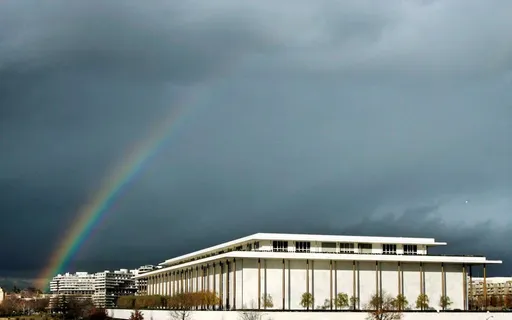Zambia goes to the polls Thursday following a fractious and sporadically violent campaign, with President Edgar Lungu fighting to stay in power after narrowly winning a snap election last year.
Lungu, who secured the presidency by less than 28,000 votes after his predecessor died of an undisclosed illness, took office as economic growth has fallen sharply.
His main rival Hakainde Hichilema, a wealthy businessman who alleges that fraud denied him victory in 2015, has launched a determined bid to secure power at his fifth attempt.
Supporters of Lungu's Patriotic Front (PF) and Hichilema's United Party for National Development (UPND) have repeatedly clashed, forcing a 10-day halt to campaigning in the capital Lusaka last month.
Lungu has taken a hard line at election rallies, issuing threats against any activists involved in unrest in a country that has enjoyed relative political stability in recent decades.
"If they push me against the wall, I will sacrifice democracy for peace," Lungu told a recent meeting in Copperbelt province, a key election battleground.
"If it means using draconian measures... I will apply them."
With the vote outcome hanging in the balance, Lungu has been accused of trying to suppress opposition campaigning.
'Risk of further violence'
The election is being held after the 2015 vote gave Lungu, 59, the right to complete the term of the late president Michael Sata that ends this year.
"This time around it is a full-term so there is more at stake and an elevated risk of further violence and protests, especially if it is tight," Sabine Machenheimer, Zambia specialist at IHS Jane's, told AFP.
Constitutional changes also mean that the winner must now secure more than 50 percent of the vote, meaning a two-way run-off is likely.
"Zambia is relatively stable (but) with a second round run-off potentially taking the election period into September, there is the threat of an extended period of violent incidents," said Machenheimer.
The former British colony, ruled by Kenneth Kaunda from 1964 until 1991, recorded GDP growth of 3.6 percent last year -- its slowest since 1998.
Growth was more than 10 percent in 2010, but the falling price of copper, the country's key export, has put the economy "under intense pressure" according to the IMF.
Thousands of jobs have been lost in the mining sector, electricity outages have become common, inflation is over 20 percent, and the government runs a huge budget deficit.
Last year Lungu held a mass prayer gathering in the national stadium to ask for divine help to improve the economy.
'HH' promises to deliver
Hichilema, 54, a British-educated economist, has emphasised his business credentials on the campaign trail.
"Promising is not enough -- and my team comes from a background of deliverance," he told a recent rally.
"We need to end corruption and policy inconsistencies which are not good for investment. We shall fix the economy."
Known as "HH", Hichilema has major investments in ranching, property and healthcare in Zambia.
"Are people able to send their children to school? Are their lives improving or not? This is what the election is about," independent financial analyst Mambo Hamaundu told AFP.
About 60 percent of the population in Zambia live below the poverty line, according to the World Bank.
HIV-AIDS drove life expectancy down to just 42 in 1998, though it has since climbed to 61.
























